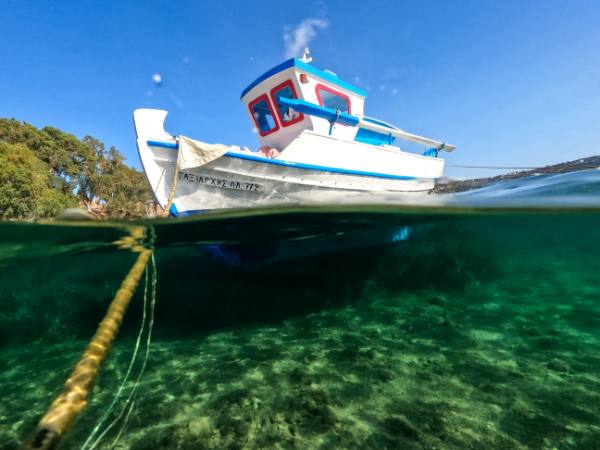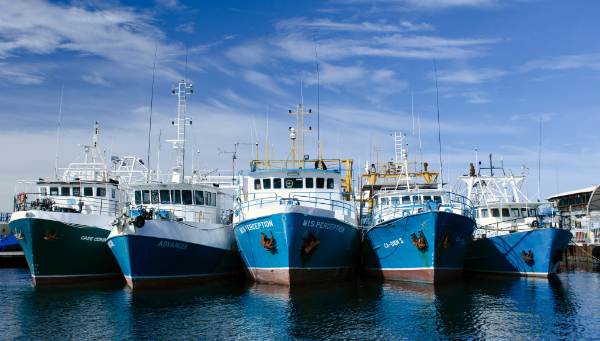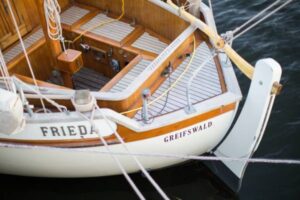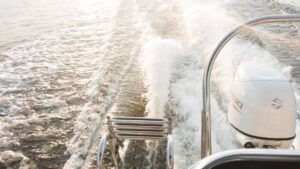You can discover new areas and catch a wider range of species using a boat.
Even though buying a boat is exciting, few anglers actually understand the cost of a boat that is fully equipped for fishing. You should also remember that the price you pay for the boat is not the final sum.
What will the price of a fishing boat be then? Depending on the make and model, a brand-new fishing boat in the 16 to 20-foot range with all the standard features, an outboard motor, and a trailer will typically cost between $18,000 and $45,000. It depends on the boat’s angle, size, market, licenses and etc.
What Determines Boat Price
Angle
Your options for purchasing a good angler boat always include the angling vessel price to size ratio. The size of the boat and the price typically match. The price of a vessel increases with size.
Boat owners decide whether to pay more or less to get a fair price after taking into account their goal of going fishing. The cost of a midsize or large vessel ranges from $50,000 to $125,000, whereas the cost of a smaller vessel depends on its features.
The majority of boats have prices that vary depending on things like engine size, maintenance costs, storage costs, and insurance and license costs. The type of boat, which determines its construction and function, is another consideration.
It’s a good idea to stick to your budget when purchasing a dependable new or used boat for fishing. For a new or used fishing boat or smaller vessel, start small—at $500—and work your way up to $12,000, as per our advice.
Boat Sizes
Keep in mind the most important control point when choosing your first fishing boat when using the price ranges above. These costs reflect your choice to rule out a boat size, from small to large.
When choosing the size of your boat, keep the following factors in mind:
- Carrying capacity for the crew, guests, and catch on the deep sea, fishing on shallow waters or pontoon boats angling
- The number of people to get aboard on a Jon boat, Boston whaler, bass boats, or cuddy cabin boats
- Capabilities of little boats, offshore boats, aluminum boats, and other popular boats
- The engine options of a single, twin, or motor-driven pontoon boat, big fish or sea hunt boat, or offshore boat
- Your boat is equipped for different types of fishing with additional features like a VHF radio and less fuel consumption.

Boat Markets
For referring customers and business deals on used or new boats to boaters, many market representatives receive compensation. It can be challenging to upgrade or improve your current aluminum boat or bass boat in various markets.
According to boaters’ preferences, each market is correlated with the fishing season, fashion, average price, and needs unique to the area.
Please note that the total includes more than just the sticker price and vessel size. Other features, such as market- or angling-area-specific add-ons, may become apparent when choosing a practical aluminum fishing boat, for instance.
Making an informed purchasing decision is crucial, as is carefully vetting each boat’s features and market variations.
Choose to add rod holders, lengthen used pontoon boats to fit larger trailers, and other features.
Marine Environment Or Area
Your best fishing boat should be kept in mind when determining where to catch fish. Plan your boat storage needs into your maritime trips, guest list, rod holders, and fish catch load.
On a lake or a small stretch of coastline, you can travel alone in a kayak or a small Jon boat. Alternately, take to the open seas in a new boat that is larger or one of your seaworthy midsize cuddy cabins.
When your boat is safe, you can go anywhere you want to with friends and family. This will create enduring memories. Pick one where you can use your effective fish finder and it doesn’t endanger marine life.
In protected areas like reserves, sanctuaries, wildlife refuges, and parks, always abide by marine laws to avoid hassles and fines. Do it to help safeguard natural marine habitats in addition to following the law.
You and future generations will benefit from protecting marine species that are in danger of extinction from overfishing.
Education
For your safety and enjoyment, while boating, it is crucial to become an educated boater. The foundational knowledge required to operate your boat safely and effectively is ensured by enrolling in a formal boater education course. You might be able to reduce the cost of your boat insurance.
Too many new boat owners believe that they can simply go out and boat if they purchase the boat and are exempt from or not required to have a license.
Licenses
Your boat needs to be licensed or registered, just like your other vehicles. State-by-state variations in the process and fees result in a fee range of about $20 to more than $200.
They are frequently based on the type, size, and duration of the vessel, as well as how long it has been registered.
You’ll get some kind of registration proof to keep with your boat once you’ve registered it. Additionally, you will receive a registration number that must be applied with reflective stickers to the bow of your boat.
Taxes
You will have to pay taxes on your boat, just like everything else in life. Where you live will have a significant impact on how severe this tax obligation is. You will need to pay any outstanding state and local taxes, but the federal government won’t take a cut.
At the point of sale, you will only need to pay the sales tax once. Other taxes that might be due include a use tax, which must be paid to the jurisdiction where the boat is used the majority of the time if you managed to avoid paying sales tax.
Boat Insurance
If you have taken the time to complete a boater safety course and obtain your safety certificate, getting insurance for a boat can be a relatively inexpensive task. For average boats, insurance policies typically cost between $20 and $50 per month.
Conclusion
Having knowledge of the elements that affect the response to the question, “How much does a fishing boat cost?” allows you to have a smooth selection and purchasing process.
You can pay more or less using the advice from this tutorial, depending on the objectives, financial constraints, and price you have in mind.



